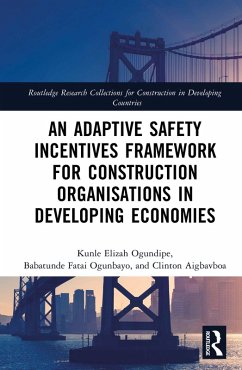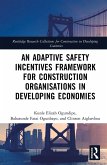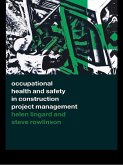The central aim of this book is to focus on safety incentives in a construction context and conceptualise an adaptive safety incentive framework for construction firms in the global south. This book is a collection of knowledge on safety incentives and their impact on improving workplace safety, motivating workers' safety practices, and improving organisations' performance goals in the construction industry. With primary research conducted in Nigeria, and secondary comparisons with Ghana, South Africa, China, Malaysia, and Hong Kong, the conceptualised framework provides insights into the multifaceted factors influencing safety incentives in the construction sector. By explaining the behavioural approach to creating reward systems that minimise unintended consequences and maximise happiness, health, wealth, and success, this book takes a pragmatic approach to developing safety incentives and provides significant practical insights.
This book identifies the gaps in safety incentives studies by critically reviewing related models, theories, and conceptual models to provide significant recommendations that support the implementation of safety incentives in the construction industry in the global south. Guiding readers on templates for developing safety incentives, this book will interest professionals in building construction, project management, quantity surveying, civil engineering, human resource management studies, and occupational safety and health (OSH) and owners of construction organisations, as well as researchers in all these fields.
Dieser Download kann aus rechtlichen Gründen nur mit Rechnungsadresse in A, B, BG, CY, CZ, D, DK, EW, E, FIN, F, GR, HR, H, IRL, I, LT, L, LR, M, NL, PL, P, R, S, SLO, SK ausgeliefert werden.









